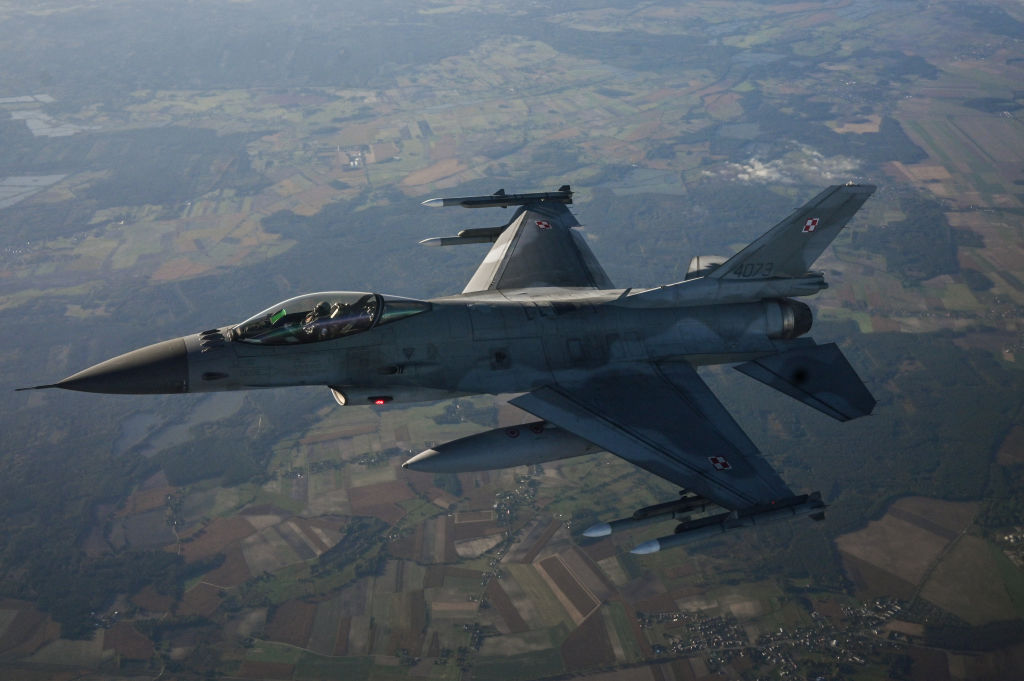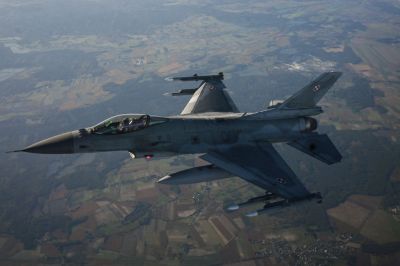Last week, after extended negotiations, the United States, Germany and other NATO members formally agreed to supply modern Western tanks to Ukraine’s military. Kyiv now has renewed a different request for a powerful Western weapon—F-16 fighter jets—and the debate is already dividing the alliance again.
“Russia hopes to drag out the war, to exhaust our forces,” Ukrainian President Volodymyr Zelensky said in a televised speech Sunday. “We have to make time our weapon. We must speed up the events, speed up the supply and opening of new necessary weaponry options for Ukraine.”
The request may be a bridge too far for the Biden administration. Asked by reporters whether the U.S. planned to send the warplanes on Monday, President Joe Biden responded with a flat “no.” A senior administration official later clarified to Politico that there had been “no serious, high-level discussion about F-16s,” but didn’t indicate whether the jets would be under consideration for future aid packages.
Ukraine’s request comes at a pivotal moment. After a winter of incremental gains and losses, both sides are preparing offensives. Ukraine hopes a steady supply of Western weaponry will be enough to counter Moscow’s superior manpower amid rumors of another mobilization in Russia.
U.S.-made F-16s would provide the air cover necessary for counteroffensive ground operations and supplement existing air defenses to protect Ukrainian civilians and infrastructure, Ukrainian officials say. The country’s Air Force currently relies on aging Soviet-era MiG-29s, which, even after upgrades, are largely outmatched by Russia’s fighter jets and anti-aircraft systems.
Some NATO states are eager to change that. Poland, one of Ukraine’s most enthusiastic backers throughout the war, is once again leading the charge to give the country the arms necessary to fend off the ongoing invasion. Last week Polish Prime Minister Mateusz Morawiecki signaled Warsaw’s willingness to send F-16s from its own arsenal to Ukraine in “full coordination” with its allies.
“Nothing is excluded,” French President Emmanuel Macron said Monday about his country’s willingness to help Ukraine, but Paris wanted assurances that the weapons not be used “to touch Russian soil.” Macron has long raised concerns that providing certain offensive weapons systems to Ukraine could draw NATO into a conflict with nuclear-armed Russia.
German Chancellor Olaf Scholz expressed similar fears—and frustration that transfers of new weapons systems were being weighed so quickly after Berlin caved on the transfer of tanks. “There will be no fighter jet deliveries to Ukraine,” he said last week. “The fact we’ve only just made a decision [on sending tanks] and the next debate is firing up in Germany, that just seems frivolous.”
But the West has softened on previous requests from Ukraine, most recently by agreeing to send tanks. “For me, everything that’s impossible today [will be] possible tomorrow,” Ukrainian Defense Minister Oleksii Reznikov said Sunday.
Sending F-16s to Ukraine isn’t as simple as flying them over. Ukraine’s air force will also need to learn how to use and maintain the fighters. F-16s are a “challenging system” with heavy training requirements, Deputy Pentagon Press Secretary Sabrina Singh said in a press conference last Friday.
That concern is “real and legitimate” but “not insurmountable,” Yuriy Sak, an adviser to Ukraine’s defense minister, said in an interview with The Dispatch. That’s been the case with many of the weapons systems Ukraine’s allies have supplied.
“It is one thing to train the pilot, but for every F-16 there is a crew of people on the ground that is required to make sure that these planes can be loaded with the necessary weaponry, can be fueled, can be serviced, can take off and land properly,” he added. “We understand all this, but these are all issues that can be overcome. If there is a will, there is a way.”







Please note that we at The Dispatch hold ourselves, our work, and our commenters to a higher standard than other places on the internet. We welcome comments that foster genuine debate or discussion—including comments critical of us or our work—but responses that include ad hominem attacks on fellow Dispatch members or are intended to stoke fear and anger may be moderated.
With your membership, you only have the ability to comment on The Morning Dispatch articles. Consider upgrading to join the conversation everywhere.